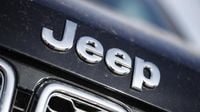Chrysler, under its parent company Stellantis, has announced a major recall impacting nearly 92,000 Jeep Grand Cherokee Plug-In Hybrid Electric Vehicles (PHEVs) in the United States. The recall, made public by the U.S. National Highway Traffic Safety Administration (NHTSA) on September 4, 2025, covers model years 2022 through 2026. The issue at the heart of the recall is a software error within the vehicle’s hybrid control processor that can cause a sudden and unexpected loss of drive power—an alarming defect that substantially raises the risk of a crash.
According to the official recall notice, the problem stems from the Battery Pack Control Module (BPCM). In some cases, the microprocessor inside the BPCM can become overloaded and reset itself. When this happens, the Hybrid Control Processor (HCP) may misinterpret the reset as a signal to cut propulsion, effectively causing the SUV to lose drive power without warning. As the NHTSA emphasized in its safety recall report, “An unexpected loss of propulsion can cause a vehicle crash without prior warning.”
The recall affects precisely 91,787 Jeep Grand Cherokee PHEVs, making it one of the larger safety actions for the brand in recent years. The vehicles in question were manufactured between 2022 and 2026 and are equipped with the hybrid control processor that is susceptible to this software glitch. Chrysler and Stellantis have stated that similar models not included in the recall either lack the specific hybrid control processor or were built after the affected production window.
Fortunately, as of August 18, 2025, there have been no reported accidents or injuries linked to this defect. Chrysler’s internal records, as cited by NHTSA, list 96 customer complaints, 110 field reports, and 320 service records that may be related to the issue. However, these numbers, while notable, have not translated into known harm—at least not yet. According to NPR, “Chrysler said it was not aware of any injuries or accidents because of the defect as of Aug. 18.”
Despite the lack of injuries so far, the recall is a serious one. The sudden loss of drive power, especially at highway speeds or in heavy traffic, poses a significant danger to drivers, passengers, and others on the road. The safety risk is compounded by the fact that the loss of propulsion can occur without any advance warning, leaving drivers little time to react.
The technical details behind the recall are complex but crucial for understanding its scope. As reported by ABC News, “A Battery Pack Control Module reset which is incorrectly interpreted by the Hybrid Control Processor may cause a loss of propulsion. An unexpected loss of propulsion can cause a vehicle crash without prior warning.” The root cause—a microprocessor overload in the BPCM—triggers the reset, and the HCP’s misinterpretation leads directly to the loss of power.
Chrysler is actively working on a remedy for the defect, but as of now, a final fix has not yet been released. The company has assured vehicle owners that a solution is in development and that they will be notified as soon as it is available. According to the recall documentation, “notification letters will be sent to affected customers by October 23, 2025.” Dealers will receive their own notifications starting September 11, 2025, and from that date, vehicle identification numbers (VINs) for the affected SUVs will be searchable on the NHTSA recall website.
For Jeep Grand Cherokee PHEV owners, the advice is clear: stay alert for recall updates, check your vehicle’s VIN on the NHTSA website beginning September 11, and await the official notification letter. Chrysler’s customer service is also available for questions at 1-800-853-1403. As noted by Fox Business, only about 1% of the affected vehicles—roughly 918 units—are believed to actually have the defect, but the company is recalling all potentially impacted models as a precaution.
This recall arrives on the heels of other major safety actions in the auto industry. Just recently, Stellantis recalled 219,000 Ram and Dodge models for unrelated issues, and earlier in the year, more than 100,000 Ford Rangers, as well as numerous Toyota and Lexus vehicles, were also recalled. Jeep itself recalled over 330,000 Grand Cherokees last year due to a separate steering wheel issue. The frequency and scale of these recalls have sparked conversations about automotive quality control and safety standards industry-wide.
Financially, the latest Jeep recall is expected to cost Stellantis between $30 million and $50 million, according to TipRanks. While this figure may seem modest relative to the company’s overall recall expenditures—which have approached $951 million since 2023—it adds to mounting concerns about long-term reliability and quality. The news has not gone unnoticed by investors: Stellantis shares (STLA) dropped 0.71% on the Friday following the announcement, standing at $9.08, and are down more than 40% over the past year. Analysts remain divided on the stock, with some attracted by its 6.36% dividend yield and others wary of ongoing recall costs and reputational risks.
The NHTSA has urged all affected Jeep owners to take the recall seriously. Vehicle owners can visit the NHTSA recall website to check their VINs and verify if their SUV is subject to the recall. The agency’s official advice is to monitor for updates and to respond promptly once the remedy becomes available. As highlighted by NPR, “Vehicle owners can also contact Chrysler’s customer service at 1-800-853-1403.”
Stellantis, for its part, has not immediately responded to media requests for comment, but the recall’s scope and the company’s ongoing efforts to develop a fix have been documented in detail by multiple news outlets, including ABC News, Fox Business, and NPR. The company’s approach—recalling all potentially affected vehicles, even when only a small percentage may actually have the defect—reflects the seriousness with which automakers are now treating software-based safety issues in increasingly complex modern vehicles.
For now, Jeep Grand Cherokee PHEV owners and the broader automotive community will be watching closely as Chrysler works to resolve the issue. The recall is a reminder of the challenges facing automakers as they integrate more advanced electronics and hybrid technologies into their lineups—and the importance of swift, transparent responses when safety is on the line.
With no injuries reported so far and a fix in the works, the hope is that swift action will keep drivers safe and restore confidence in one of Jeep’s flagship models.



